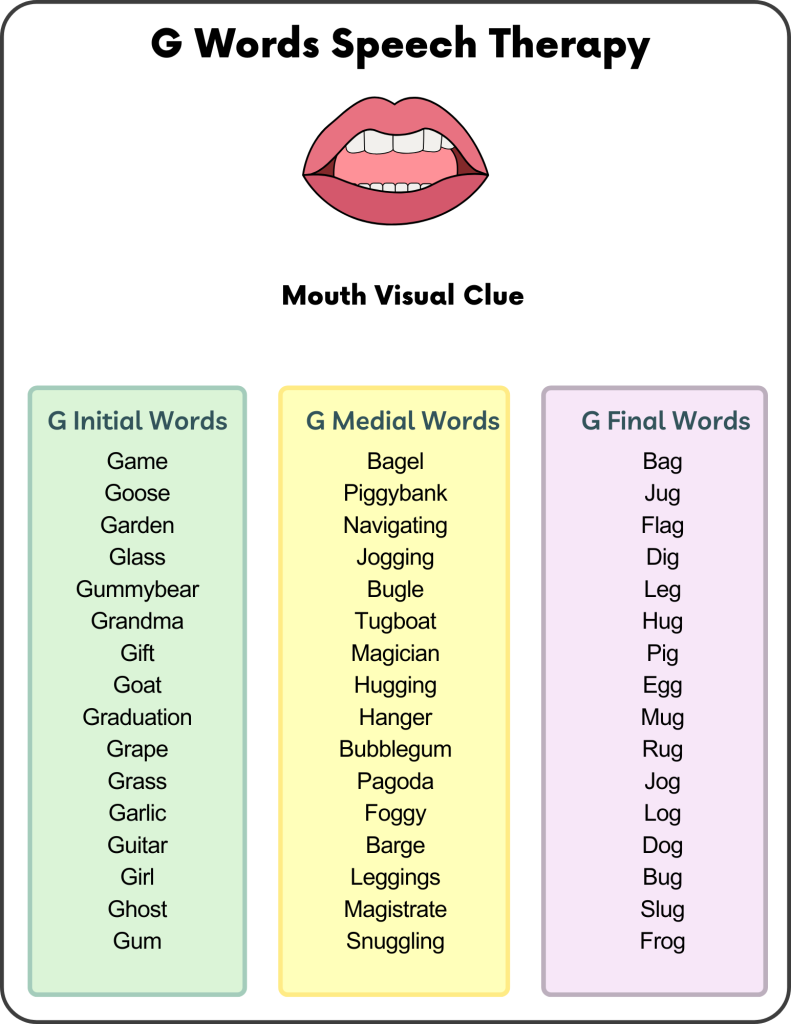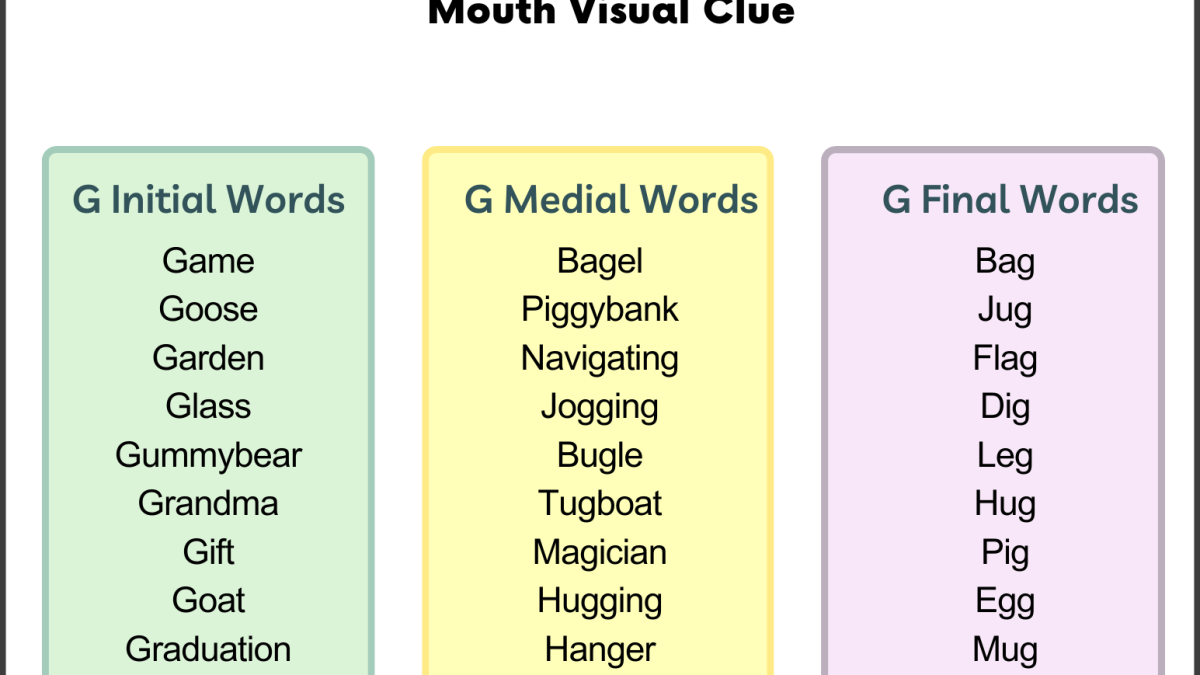
N Words in Speech Therapy
November 19, 2025
F Words in Speech Therapy
November 19, 2025Introduction to G Words in Speech Therapy
Hello, parents! If your child is finding difficult to say the G sound, this guide is here to assist. The G sound—a voiced velar stop made by raising the back of the tongue to the soft palate and releasing it with voice—is typically mastered by age 4, but some kids may substitute it with “D” (e.g., “do” for “go”) due to its back position. This article provides lists of G initial, medial, and final words, plus practical tips to make practice engaging and effective at home, giving you tools to help your child’s speech grow strong.

G Words Speech Therapy Printable PDF Worksheet
Understanding G Word Positions
- Initial G Words: These begin with G, like “game” or “goose,” where the sound starts with a robust, voiced burst.
- Medial G Words: These have G in the middle, such as “hanger” or “bugle,” blending G with other sounds.
- Final G Words: These end with G, like “bag” or “jug,” requiring a clear, voiced finish.
Lists of G Words for Practice
Here are simple, kid-friendly G word lists for home use, ideal for daily chatter or play.
G Initial Words
- Game
- Goose
- Garden
- Glass
- Gummybear
- Grandma
- Gift
- Goat
- Graduation
- Grape
- Grass
- Garlic
- Guitar
- Girl
- Ghost
- Gum
G Medial Words
- Bagel
- Piggybank
- Navigating
- Jogging
- Bugle
- Tugboat
- Magician
- Hugging
- Hanger
- Bubblegum
- Pagoda
- Foggy
- Barge
- Leggings
- Magistrate
- Snuggling
G Final Words
- Bag
- Jug
- Flag
- Dig
- Leg
- Hug
- Pig
- Egg
- Mug
- Rug
- Jog
- Log
- Dog
- Bug
- Slug
- Frog
Tips for Parents to Support Practice
Here’s how to help your child with G words at home:
- Feel the Back: Say “go” with a big “guh” to feel the back-tongue lift—try a gentle gargle to find the spot!
- Weave into Fun: Use words naturally, like “Give the goat a hug,” during play or stories.
- Repeat with Bounce: Chant “gum, gum, gum” while chewing pretend gum to reinforce the sound.
- Model the Voice: Buzz the “g” (e.g., “G-g-game”), showing the voiced burst, and cheer their tries.
- Add Actions: Pair “jump” with a hop or “dog” with a bark
If your child swaps G for D (e.g., “doat” for “goat”) or drops final G (e.g., “do” for “dog”), a speech therapist can help adjust tongue placement.
The G sound is a great goal for clear speech, and you’re set to help your child master it! With these G initial, medial, and final word lists and easy home tips, practice can be a blast. Keep it fun and steady, and don’t hesitate to seek a professional if needed—your support is golden for their words!


